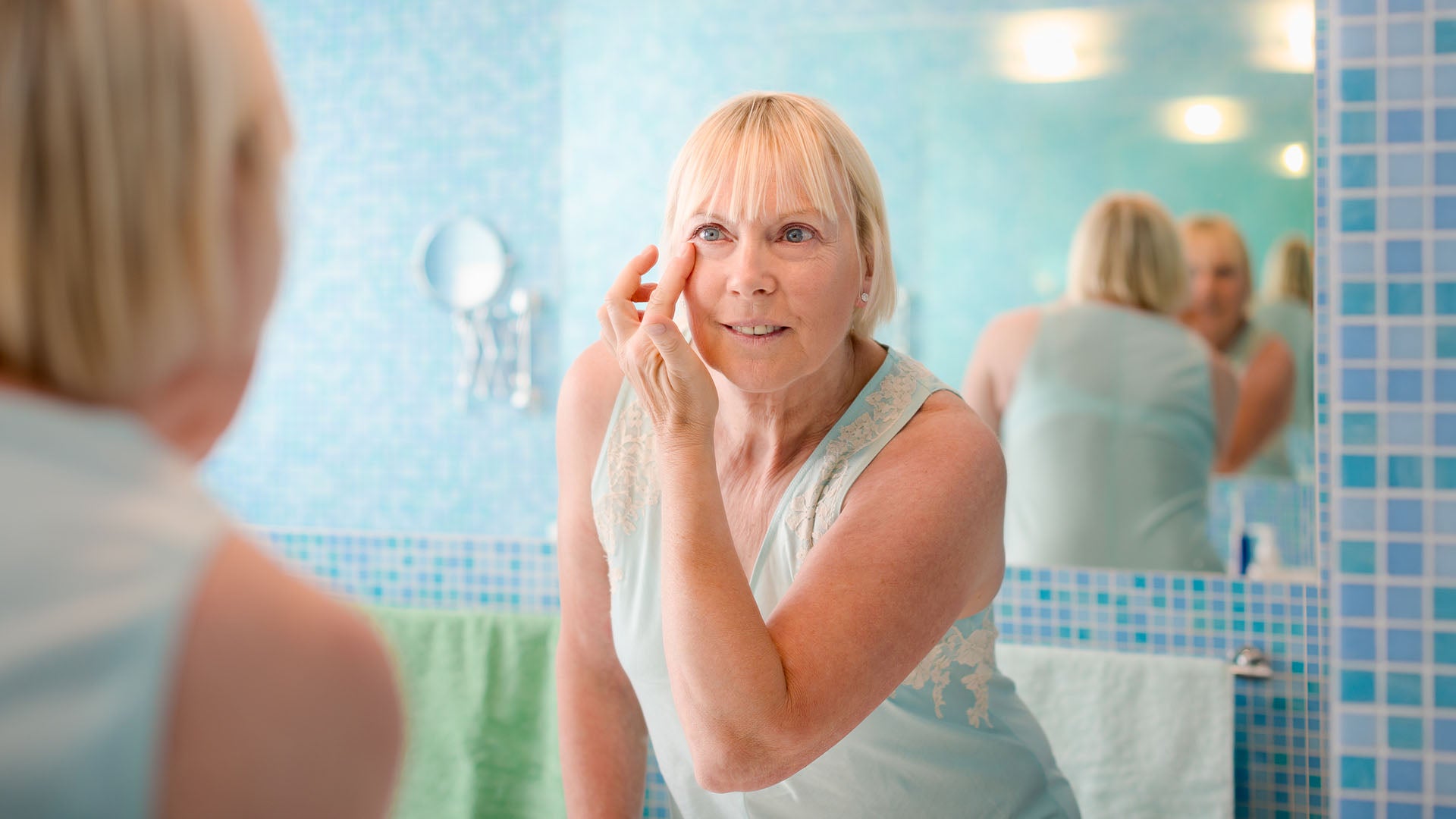Caring for your skin during menopause

Our customer survey shows that, on average, when women reach the age of 44, their skin concerns dramatically change - wrinkles, fine lines and signs of ageing become primary skin concerns. Menopause is a significant transition for women, often accompanied by a variety of physical changes, including those in the skin. Nutritionist Ella Allred explains these changes and how to care for skin during menopause and maintain your skin's health, glow and vitality.
Why skin changes during menopause
During menopause, the body undergoes hormonal shifts, and mostly a decrease in oestrogen production. Oestrogen has a vital role in the maintenance of healthy hair as well as the elasticity, moisture and thickness of skin. As oestrogen levels decline, the skin can become thinner and drier. It may also be more prone to irritation and other issues such as acne and rashes, and these changes are well documented in research. According to studies, declining oestrogen levels lead to decreased collagen production, which contributes to wrinkles and a sagging of skin. Lower oestrogen levels also reduce your body's natural oil production, leading to dryness and itchiness of skin.
Collagen is also essential for supporting the transportation of essential nutrients to the scalp and hair follicles for healthy hair growth. As a result, a decline in collagen effects the growth and strength of your hair and the health of your scalp, which can lead to hair thinning, brittleness and weakness. Learn more in how menopause affects your skin and hair.
Did you know 'vegan collagen' does not exist? In our skin health customer survey, just under half of people were not aware that collagen is made from boiled animal ligaments and bones, or boiled fish scales and shellfish. There is no such thing as 'vegan collagen' - the only non-animal based collagen ('vegan collagen') is what we produce in our bodies. Continue learning about collagen.
Skin changes during menopause
There are some very common changes in skin experienced during menopause, including:
- Itchy and prickly skin: Itchiness and a prickly sensation are common complaints during menopause. This discomfort often results from dryness and decreased skin elasticity. An itchy skin sensation could also be a tactile hallucination, which means that there is a physical sensation, but with no physical cause. This is also referred to as 'formication' and may present with severe itch, which our surveys show up to 20% of women experienced when going through menopause.
- Dry, sagging skin: Most menopausal women will experience drier skin through their menopause journey. This occurs due to a decrease in the body's natural oil production and an impaired skin barrier function, and can lead to a gradual increase in the saggy appearance of skin.
- Skin rashes: Skin rashes during menopause are common and are caused by hormonal fluctuations, and an increased sensitivity of the skin.
- Breakouts: Menopause can often trigger acne or other types of breakouts due to hormone fluctuations.
- Burning sensation of the skin: A burning sensation may occur on the skin, due to changes in sensitivity in the nerve endings (which are affected by a decrease in collagen), and a weaker skin barrier function.
Looking after your skin through menopause
Taking time to care for your skin can improve many of these issues and promote overall skin health during menopause, including reducing the appearance of fine lines and wrinkles, and enjoying glowing, plumper skin. Skin care products, supplements and diet can all have a big impact on the health of your skin:
Skin care products
Choose gentle, hydrating skincare supplements, creams and lotions formulated for sensitive skin. Look out for ingredients including hyaluronic acid, ceramides, niacinamide, and probiotics to help retain moisture and strengthen the skin barrier.
You may be interested in reading the best foods and vitamins for healthy, glowing skin or trying one of our 5 easy smoothie recipes for glowing skin.
Best diet for skin
Menopause has a big impact on your gut health, which in turn impacts the health of your skin. In our survey in February 2024, 91% of women going through menopause said they experienced changes in gut health. Changes in gut health lead to a change in the gut microbiome and changes in skin via the gut-skin axis.
A balanced diet that is rich in antioxidants, vitamins, minerals and omega 3 fatty acids can improve skin health. Omega 3-rich foods include chia seeds, walnuts and algae oil. In our survey on skin health, only 46% of people said they regularly drink two litres of water a day. Insufficient water intake will leave your skin dry and itchy, with a poor complexion and dull appearance. Staying hydrated is also essential for digestion.
Your diet should also contain plenty of fibre to feed the good bacteria (probiotics) in the gastrointestinal tract. Good bacteria produce short-chain fatty acids, which are absorbed and are very beneficial for the skin. Research shows that increasing fibre intake was one of the most effective changes in diet during the menopause to combat symptoms of menopause.
*Based on a UK survey conducted by DR.VEGAN® of 96 customers, nationally representative, during May 2023. All customer survey findings reflect our own efforts and have not been influenced or verified by any external organisations or third-party entities.
You may also enjoy reading:
Want to hear more from our nutritionists? Sign up to our email newsletter for insights and exclusive offers:


















